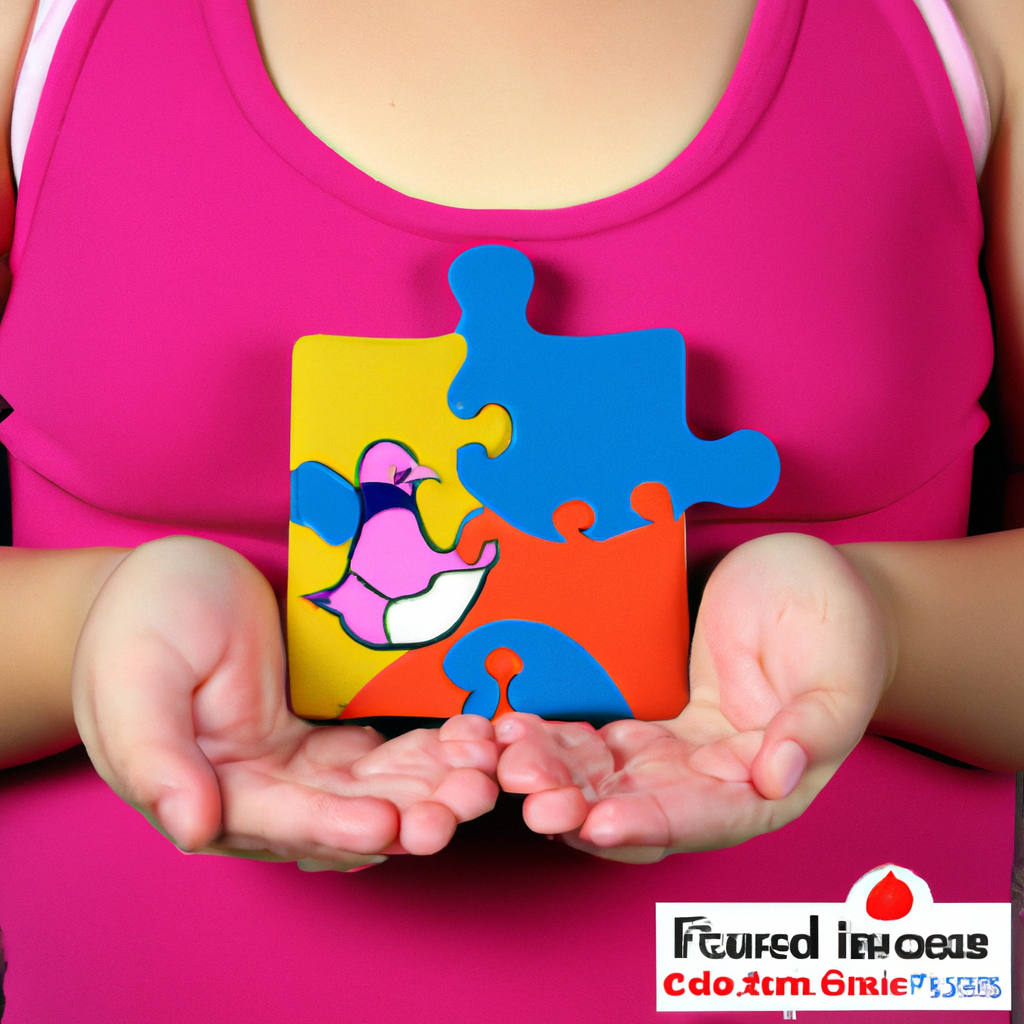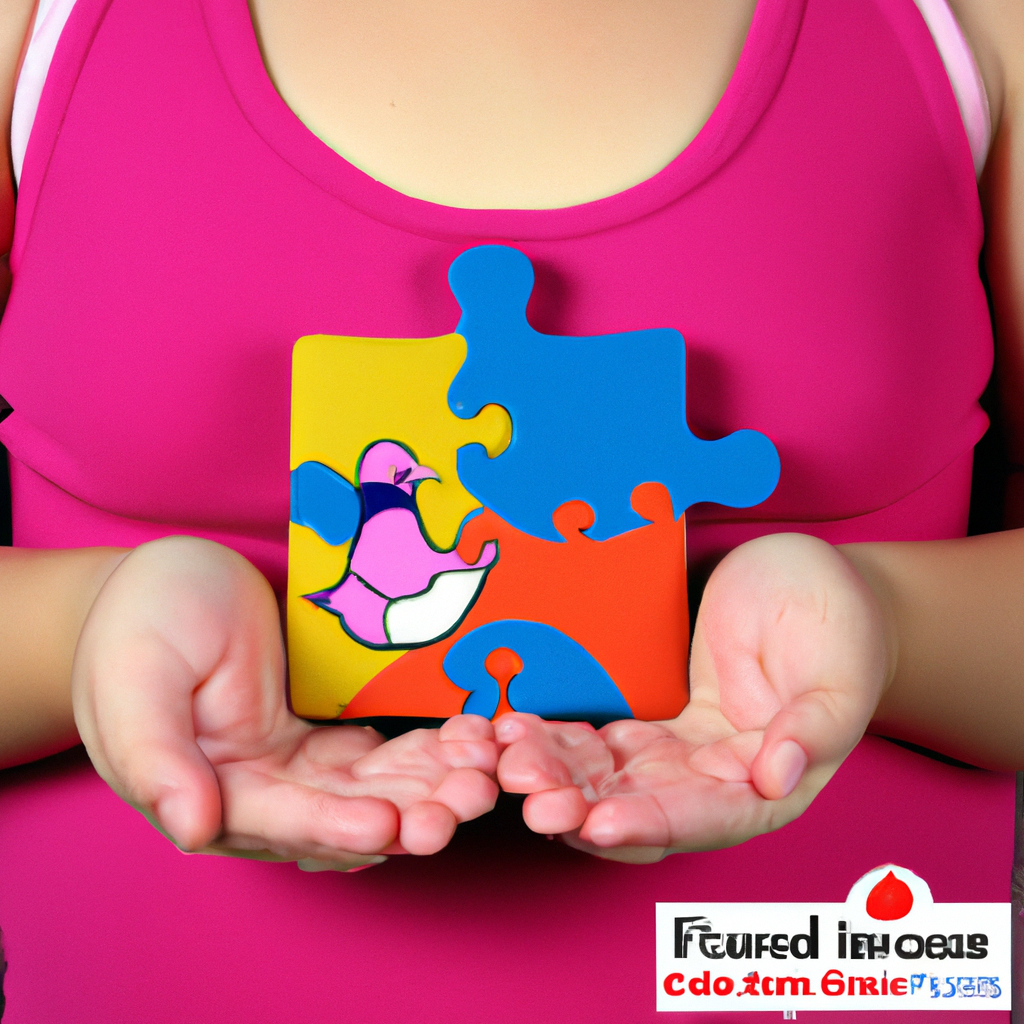Did you know that breastfeeding education in schools can have a significant impact on the overall health and well-being of both mothers and babies? It’s true! In this article, we will explore the importance of incorporating breastfeeding education into school curriculum and how it can positively influence the breastfeeding rates and practices of future generations. From dispelling myths and promoting support to empowering young individuals with knowledge, the inclusion of breastfeeding education in schools is a crucial step towards creating a society that embraces and supports breastfeeding as a normal and natural part of life.


Creating Awareness about Breastfeeding
Breastfeeding is a natural and beneficial way to nourish infants, providing them with essential nutrients and antibodies that help protect against various illnesses and diseases. However, despite its numerous benefits, breastfeeding rates continue to decline worldwide. To address this issue, it is crucial to create awareness about breastfeeding, starting from a young age. Schools play a vital role in this endeavor, as they serve as an influential platform to inform and educate students about the importance of breastfeeding.
The importance of creating awareness in schools
Schools are not only places for academic learning but also for promoting holistic development. By integrating breastfeeding education into the school curriculum, we can create an environment that fosters knowledge, empathy, and support for breastfeeding. When students are aware of the benefits of breastfeeding, they become advocates for themselves, their families, and their communities. By educating students about the importance of breastfeeding, we empower them to make informed decisions about their future and positively impact public health.
Benefits of breastfeeding education in schools
Breastfeeding education in schools offers a wide array of benefits for students, parents, and society as a whole. By providing accurate and evidence-based information, schools can help dispel myths and misconceptions surrounding breastfeeding. Students who receive comprehensive breastfeeding education can make informed choices when they become parents. They are more likely to initiate breastfeeding, continue it for the recommended duration, and understand the importance of exclusive breastfeeding during the first six months of a baby’s life.
Addressing Misconceptions and Myths
Breastfeeding is surrounded by myths and misconceptions that can deter individuals from embracing this natural and beautiful practice. It is crucial to address these misconceptions through education to ensure that breastfeeding is understood and supported by all.
Common misconceptions about breastfeeding
One common misconception is that breastfeeding is painful and inconvenient. In reality, breastfeeding should not be painful if the baby is latched correctly. Another misconception is that formula feeding is equivalent to breastfeeding. While formula feeding is a viable option for some, breast milk contains unique components that provide optimal nutrition and immune protection for infants.
Debunking myths through education
Through education, we can debunk these myths and provide accurate information about breastfeeding. By teaching students about the physiology of breastfeeding, the benefits it provides to both the mother and the baby, and how to address common challenges, we can dispel misconceptions and promote breastfeeding as a normal and worthwhile endeavor. It is essential to educate students about the benefits of breastfeeding from an early age to ensure that they grow up with accurate and unbiased knowledge about this natural process.
Promoting Health and Well-being
Breastfeeding has a significant impact on the health and well-being of both the mother and the infant. By educating students about the health benefits of breastfeeding, we can contribute to a healthier future generation.
Breastfeeding’s impact on maternal and infant health
Breastfeeding has numerous health benefits for both mothers and infants. It enhances the mother’s postpartum recovery, reducing the risk of postpartum bleeding and contributing to weight loss. Breast milk provides infants with essential nutrients, antibodies, and enzymes that help protect against infections, allergies, and chronic diseases. Studies have shown that breastfeeding decreases the risk of sudden infant death syndrome (SIDS), obesity, and certain childhood cancers.
Reducing the risk of diseases through breastfeeding education
By educating students about the impact of breastfeeding on maternal and infant health, we can reduce the risk of various diseases and health issues. Breastfeeding education in schools can help prevent chronic conditions such as diabetes, cardiovascular diseases, and certain types of cancer. Students who understand the long-term health benefits of breastfeeding are more likely to support and encourage breastfeeding when they become parents themselves.
Encouraging Supportive Environments
Breastfeeding is a personal choice, but creating a supportive community is essential to ensure that women feel empowered and comfortable in their decision to breastfeed. Schools can play a crucial role in fostering a supportive environment for breastfeeding mothers.
Building a supportive community within schools
Schools can foster a supportive environment by implementing breastfeeding-friendly policies. Creating designated breastfeeding areas or lactation rooms, training staff on breastfeeding support, and raising awareness about the importance of accommodating breastfeeding mothers are effective ways to make schools more inclusive and supportive. By involving students in these initiatives, we cultivate a culture of empathy and understanding, promoting the acceptance of breastfeeding as a normal part of life.
Empowering students and educators through breastfeeding education
By educating students and educators about breastfeeding, we empower them to become advocates for breastfeeding support and create a positive impact in their communities. Schools can organize workshops, seminars, and awareness campaigns led by healthcare professionals and lactation consultants to enhance knowledge about breastfeeding. Educating students about the challenges faced by breastfeeding mothers and the importance of non-judgmental support can contribute to a more inclusive and supportive environment within and outside of school premises.


Inclusive and Diverse Education
Breastfeeding is a universal practice that transcends cultural boundaries. Educating students about diverse cultural perspectives on breastfeeding promotes inclusivity and understanding.
Cultural perspectives on breastfeeding
Different cultures have varying beliefs and practices regarding breastfeeding. Some communities may embrace extended breastfeeding, while others may have specific rituals or taboos surrounding breastfeeding. By teaching students about these cultural perspectives, we foster empathy and encourage respect for diversity. Educating students about different cultural practices also helps break down stereotypes and reduce judgment, allowing for a more inclusive and accepting society.
Educating students about the importance of inclusivity
Inclusive education goes beyond providing knowledge; it involves nurturing empathy, respect, and understanding. By educating students about the importance of inclusivity, we prepare them to embrace diversity and challenge societal norms that may hinder breastfeeding. By promoting understanding and respect for different cultural practices, schools can contribute to empowering breastfeeding mothers from all backgrounds and ensuring that they receive the support they deserve.
Addressing Stigma and Social Taboos
Despite the numerous benefits of breastfeeding, it continues to face stigma and social taboos in many communities. Education plays a crucial role in breaking down these barriers and promoting acceptance and understanding.
Breaking down societal barriers through education
Education can challenge societal stereotypes and misconceptions about breastfeeding. By teaching students about the biological, emotional, and societal importance of breastfeeding, we can break down barriers and promote open conversations about this natural process. By addressing stigma and misconceptions head-on, we can create a more supportive and accepting society that embraces breastfeeding as a normal and essential part of life.
Promoting acceptance and understanding
Through education, we can promote acceptance and understanding towards breastfeeding mothers. By teaching students about the benefits of breastfeeding and the challenges faced by breastfeeding mothers, we promote empathy and discourage judgment. Cultivating a culture of support and understanding creates an environment where breastfeeding mothers feel comfortable and empowered to breastfeed anytime and anywhere, without fear of social judgment or exclusion.


Preparing for Parenthood
Parenthood is a transformative journey, and being equipped with knowledge and skills is essential for future parents. Breastfeeding education in schools can play a critical role in preparing students for the challenges and joys of parenthood.
Equipping students with knowledge and skills for future parenting
Schools are uniquely positioned to provide students with information and resources that prepare them for parenthood. By including breastfeeding education in the curriculum, we equip students with practical knowledge about breastfeeding techniques, lactation management, and dealing with common breastfeeding challenges. Understanding the importance of breastfeeding and being prepared for parenthood enables students to make informed decisions when they become parents and provides a solid foundation for their future families.
Reducing parenting challenges through breastfeeding education
Breastfeeding education in schools can help reduce parenting challenges associated with breastfeeding. By teaching students about proper latch techniques, recognizing hunger cues, and understanding the nutritional needs of infants, we empower future parents with practical skills to overcome common breastfeeding difficulties. This education can alleviate anxieties and enable parents to create a positive and nurturing breastfeeding experience for themselves and their babies.
Connecting with Other Curriculum Areas
Breastfeeding education can be effectively integrated with various subjects, enhancing students’ knowledge and understanding of breastfeeding and its broader context in society.
Integrating breastfeeding education with science and health classes
Science and health classes provide an excellent foundation for teaching the biological aspects of breastfeeding. By integrating breastfeeding education into these subjects, students can learn about the anatomy and physiology of lactation, the composition of breast milk, and the biological benefits of breastfeeding. This interdisciplinary approach not only deepens students’ understanding of breastfeeding but also highlights the scientific basis behind its importance.
Linking breastfeeding to social and cultural studies
Breastfeeding is more than just a biological process; it is deeply intertwined with social, cultural, and historical contexts. By linking breastfeeding education to social and cultural studies, students can explore the historical practices of breastfeeding, analyze the impact of cultural beliefs on breastfeeding practices, and understand the social inequalities that affect breastfeeding rates. This comprehensive approach broadens students’ perspectives and fosters critical thinking about the multifaceted nature of breastfeeding.


Providing Evidence-Based Information
In an era of information overload, it is crucial to equip students with the skills to critically evaluate information about breastfeeding. By providing evidence-based information, we ensure that students have access to accurate and reliable knowledge.
Importance of accurate and trusted sources
In the digital age, misinformation about breastfeeding is widespread. It is crucial to teach students how to differentiate between accurate and unreliable sources of information. By emphasizing the importance of evidence-based research and reliable resources, we empower students to seek information from trusted sources such as medical journals, reputable websites, and healthcare professionals. This critical skill enables students to make informed decisions not only about breastfeeding but also about various health-related topics throughout their lives.
Equipping students with the tools to critically evaluate information
In addition to identifying trustworthy sources, students need to develop critical thinking skills to evaluate the information they encounter. By teaching students how to analyze research studies, assess the credibility of sources, and understand the limitations of scientific findings, we equip them with the tools to critically evaluate information about breastfeeding. This skill promotes informed decision-making, strengthens research literacy, and prepares students to navigate the complex landscape of health-related information.
Empowering Future Generations
Breastfeeding education in schools is not only about disseminating information but also about fostering a generation of advocates for breastfeeding. By empowering students, we create a positive impact on future public health.
Fostering a generation of advocates for breastfeeding
By educating students about the benefits and importance of breastfeeding, we inspire them to become advocates for positive change. Students who understand the significance of breastfeeding are more likely to support breastfeeding mothers, challenge societal norms, and advocate for breastfeeding-friendly policies in their communities. By emphasizing the role they can play as agents of change, we instill a sense of responsibility and empower students to make a difference in promoting breastfeeding and its benefits.
Creating a positive impact on future public health
Breastfeeding has far-reaching implications for public health. By promoting breastfeeding education in schools, we contribute to the improvement of overall population health. Well-informed individuals are more likely to embrace breastfeeding and make choices that positively impact their own health and the health of their children. By creating a future generation that values and supports breastfeeding, we lay the foundation for healthier communities and a brighter, more sustainable future.
In conclusion, creating awareness about breastfeeding in schools is crucial for multiple reasons. It addresses misconceptions, promotes health and well-being, creates a supportive environment, fosters inclusivity and diversity, breaks down stigma and social taboos, prepares for parenthood, connects with other curriculum areas, provides evidence-based information, and empowers future generations. By integrating breastfeeding education into the school curriculum, we have the opportunity to shape a generation that embraces and supports breastfeeding, leading to improved individual and community health outcomes. Let us join hands in creating a world where breastfeeding is celebrated and nurtured, for the benefit of present and future generations.
